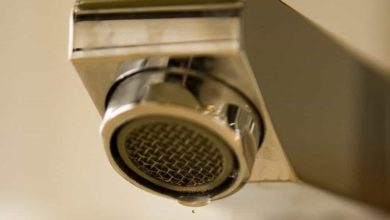In the short five months that I have been in medical school, I have come to realize certain truths about the medical community from a student physician’s perspective. If you are thinking about med school, these are some ideas you must appreciate to succeed in medicine.
I sit in front of my computer today, feet propped up on my coffee table, with the first free afternoon I’ve enjoyed in nearly 3 months. It was fitting to allow myself a bit of reflection upon this first semester. In the short five months that I have been in medical school, I have already come to realize certain truths about the medical community from a student physician’s perspective. If you are thinking about med school, these are some ideas you must appreciate to succeed in medicine:
Studying becomes a regular routine
Recently, one of my buddies from college invited me out on a Saturday night to grab a drink. The conversation went something like this:
“Hey Evan, want to grab a beer tonight?”
“Ah, really wish I could, but I’m going to stay in and get some studying done”
“Oh really? When are your finals?”
“Not for another month or so, but I’m pretty behind”
That conversation, while difficult to have with a close college friend, has become fairly commonplace on the weekends. It has also made me realize that in undergrad, studying was sometimes regarded as an event – a chore that must be completed when finals rolled around. It was fine to cram, if you still managed to pull a good grade and maintained your GPA. After the exam, the information we gained seemed to fall right out of our heads. All that changes in medical school.
On some level, it is strange to think that we will study longer and harder in medical school than we ever had in undergrad, even though the pass/fail system requires only a 70% to get through the first two years. Studying in med school becomes a part of your everyday routine: class, eat, study, repeat. The library, coffee shops, and study lounges become like second homes. Socializing and studying with your classmates become nearly synonymous. It may seem a bit extreme, but this idea doesn’t seem so bizarre when you realize that everything we learn and understand will help us provide the best possible care when we become doctors. As one faculty member aptly phrased it during our orientation: “In medical school, we don’t study for the grade anymore – we study for our patients.”
PDr Tip: In medical school, don’t view studying as a burden. It should become enjoyable as concepts begin to overlap and make sense. The human body is a fascinating construct, and the challenge of solving complex medical problems is one of the thrills of medicine. It is humbling to realize how much there is still to learn.
PDr Tip #2: Although medical students spend much of their time studying, there will still be time for you to have a life and enjoy the things you love. Spending time with loved ones and engaging in some hobbies will provide balance and rejuvenation.
||Read: Reasons to Be a Doctor | 5 Steps to a Better GPA||
Seeing and touching the human body
Lawyers memorize cases and decisions. Chemists understand the composition of matter. And physicians? We specialize in the human body. Every pathology is located somewhere in the body, and oftentimes the only way we can find out more about the problem is by pushing until it hurts. This means that as a medical student, you will become more familiar and comfortable with the human body than any other profession could ever imagine. There is a 3-hour session every other week in school, where we are asked to wear gym shorts and sports bras, because we will be practicing clinical skills not only on standardized patients but on each other as well. Even friends and family have asked me to take a look at strange bumps and bruises on their body.
We work in a field where the patients wear nothing but a paper-thin gown and slippers in the hospital. One of the first things we do upon meeting a patient is give a physical exam, and clothing only gets in the way. We wear disposable scrubs in clinic because at any moments notice, we may have to examine a patient covered with mucous, blood, and who knows what else. Remember, nobody comes into the doctor’s office when everything looks normal and healthy. An abscess with something sticky coming out of it, smelly fungus between the toes, and little scabies up and down somebody’s arms may sound like a nightmare to some, but it’s a productive Wednesday evening for a medical student at the free clinic.
PDr Tip: Understand normal before trying to understand abnormal. This means you should practice your physical examination skills as much as possible, before your third year. Take the blood pressure of your friends and listen to the heart of your family members. Becoming familiar with normal will make identifying abnormalities much easier when the time comes.
||Read: Practical Advice for Premeds||
While some of these aspects of medical school may come across as negative, try to think of them as honest. This series of articles will provide a small window into what to expect once medical school begins. The path to medicine is demanding, but so rewarding. If you enjoyed this article, stay posted for What to Expect in Medical School Part 2.



